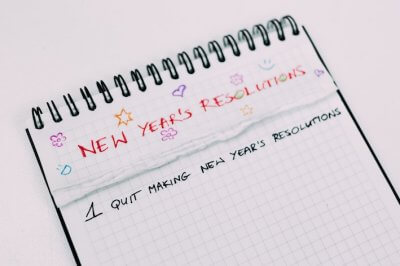Personal Achievements -Why Noting Yours Starts Your Year Right

photo by Pexels Freestock
by Victoria Stokes
When one year ends and another begins do you set resolutions? Only to feel a crashing sense of failure when those resolutions don’t work out? A better idea, if psychology research is to have a say, would be to spend time recognising personal achievements.
The power of recording your personal achievements
While setting resolutions sets us up to feel a crashing sense of failure, recognising our personal achievements has actually been found to motivate and push us to accomplish.
A 2017 study that examined 12,000 diary entries found that regularly documenting the small things we achieve can give us a sense of progress, provide motivation, and make us more productive in the long run.
Journal your way to success
Make a habit of writing out your accomplishments, no matter how small, to motivate yourself. This means that in moments where you start to feel like nothing ever changes you have proof this isn’t true.

photo by Arina Krasnikova
Consider writing prompts like:
- How much have you changed in the last year? And in what ways?
- What challenges have you faced and what did they teach you?
- And what are the learnings you are taking into this new year?
- What are you most proud to have achieved?
But my personal achievements don’t measure up
When one year ends and another begins we tend to ignore our personal achievements and dwell on our shortcomings instead. In part this is the way we are built, what psychologists call ‘negativity bias’. Studies show we’re more likely to focus on the things we haven’t achieved than take stock of what we have accomplished.
Again, remembering to record your achievements helps. It shows you in black and white all the many things you did accomplish. And the setbacks and challenges you triumphed over, even if you had what felt like an unproductive year.
Be mindful about social media
Does your own progress seem less remarkable when you look on social media and see how well others are apparently doing? Social Comparison Theory has been around since the 1950s, and it believes that we have an innate drive to evaluate ourselves against others.
 If this is the case for you, it might be wise to limit your social media consumption. Identify what sparks unhealthy comparisons for you then mute triggering accounts or set screen time limits, for example.
If this is the case for you, it might be wise to limit your social media consumption. Identify what sparks unhealthy comparisons for you then mute triggering accounts or set screen time limits, for example.
Or consider making ‘downward comparisons’. It turns out letting yourself have a quiet moment of recognising you are doing better in some way to someone else may be good for your mood. In one study, participants with low self-esteem reported improved mood after being exposed to downward comparison information.
Deep dive with your personal achievements
It’s easy to glaze over the past year and only consider the things that didn’t go quite as planned. But when you take your time, you might find there’s more to celebrate than you previously realised.
Consider looking at each month individually and jotting down any achievements, big or small, that come to mind. To jog your memory, you might like to look through pictures from that time or sit down with a loved one who was there. You might find they are quicker to point out your achievements then you are.
Reward yourself
Get into the habit of rewarding yourself for your personal achievements, and you might feel sharper and more ready to learn and achieve in the year ahead.
Neuroscientists discovered that anticipating rewards can actually enhance memory and learning. So if you have goals you want to achieve in the new year, setting rewards in advance may help you achieve them.
How can you reward yourself for all the things you now realise you actually accomplished in the past year? From a nice meal out to a spa day at home, a reward is what leaves you feeling celebrated.
Remember you’re human
None of us is perfect. The world would likely be a pretty dull place if we were. And yet, we often hold ourselves to such high account. We expect so much of ourselves and can be incredibly critical when we make the slightest misstep.
Try the art of self-compassion, where you treat yourself like a friend. And just like you wouldn’t berate a friend for not achieving all of their goals you should show yourself the same kindness.
Can’t feel good about yourself no matter how hard you try?
Constantly live with a sense of failure? Of feeling lesser than? Flawed, no good? Sometimes our crushing lack of confidence is deeply rooted in past experiences, or a life where we simply didn’t learn how to value ourselves. And we need some support to find our way forward.
Working with a counsellor or psychotherapist helps you see yourself in an all new light, recognise your inner resources, and make choices that improve your esteem instead of once again being self-sabotage.
Ready to believe in yourself? We connect you with some of London’s most highly rated and experienced mental health experts. Or use our booking platform to find UK-wide registered therapists and online counselling you can book from overseas.
Want to share you tip about using personal achievements to feel accelerate your self-esteem? Use the comment box below.
 Victoria Stokes is a Belfast-based writer who counts reading, journalling, and travelling amongst her favourite hobbies. She finds hobbies to be her most important act of self care. Next on her list? Flower arranging and kickboxing. Keep up with her on Instagram.
Victoria Stokes is a Belfast-based writer who counts reading, journalling, and travelling amongst her favourite hobbies. She finds hobbies to be her most important act of self care. Next on her list? Flower arranging and kickboxing. Keep up with her on Instagram.




